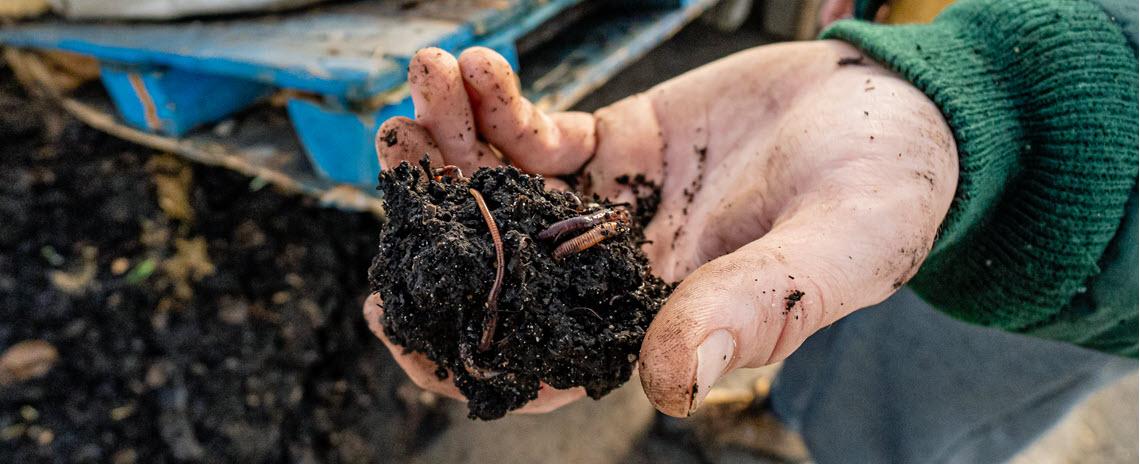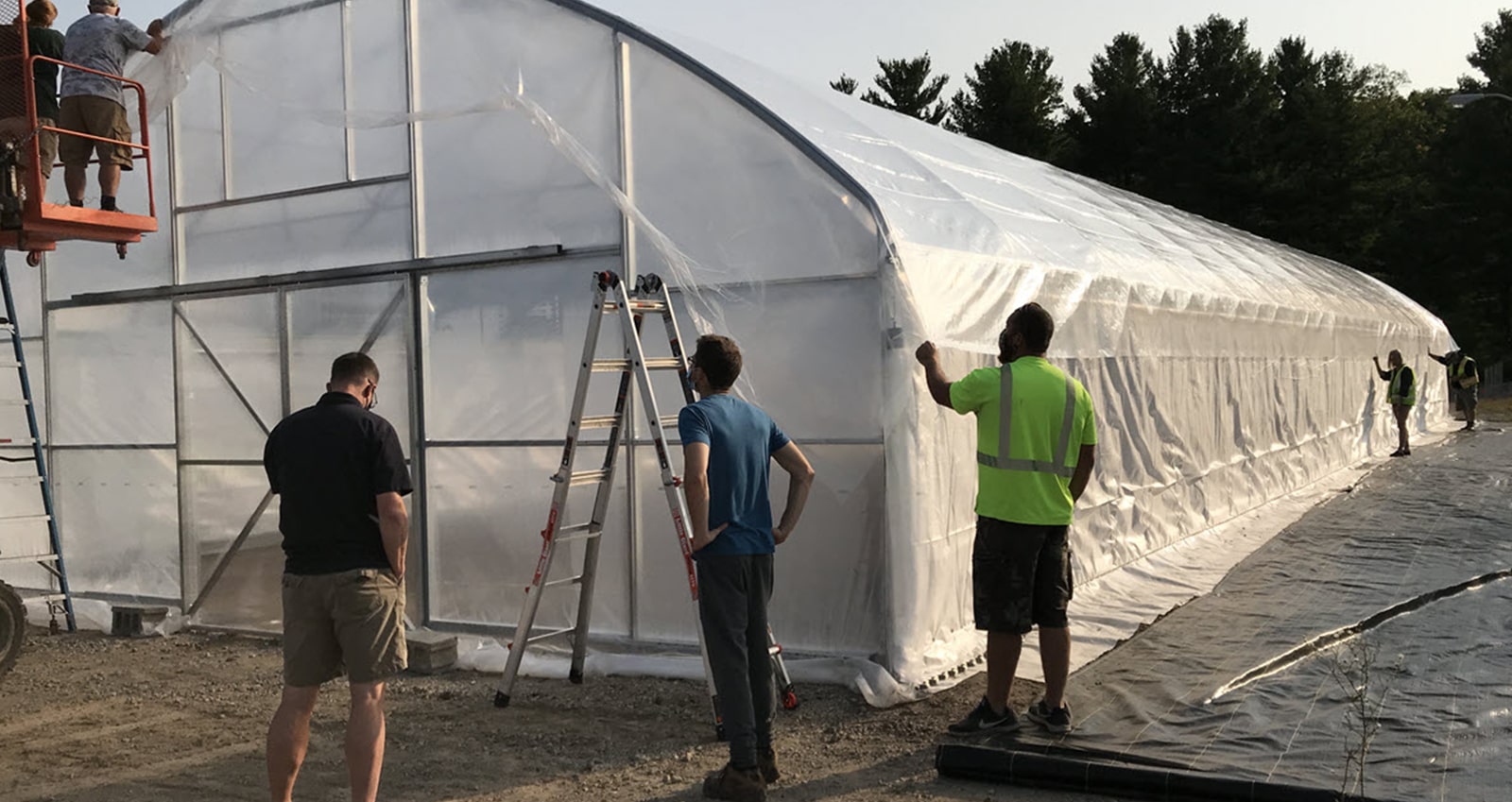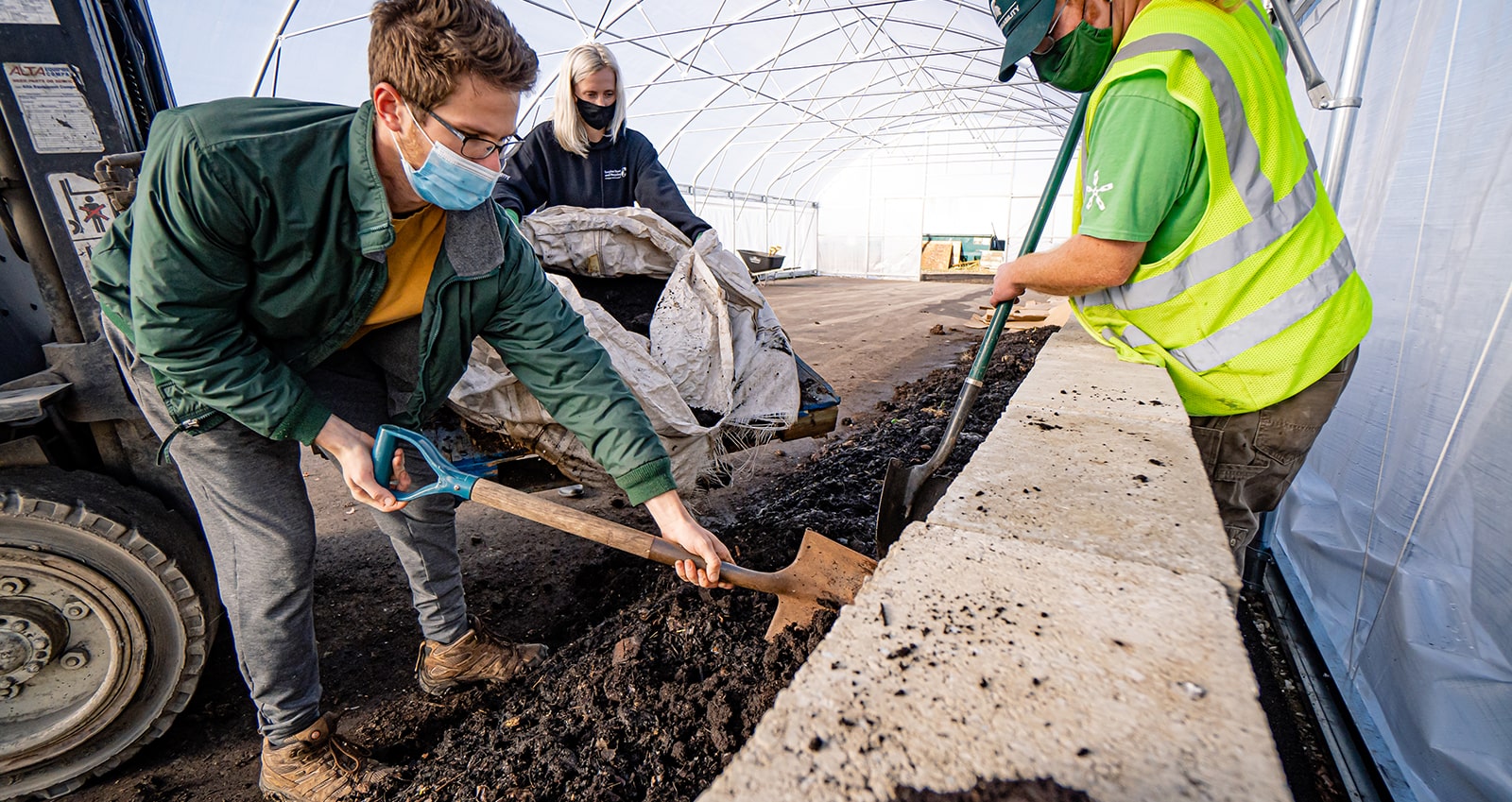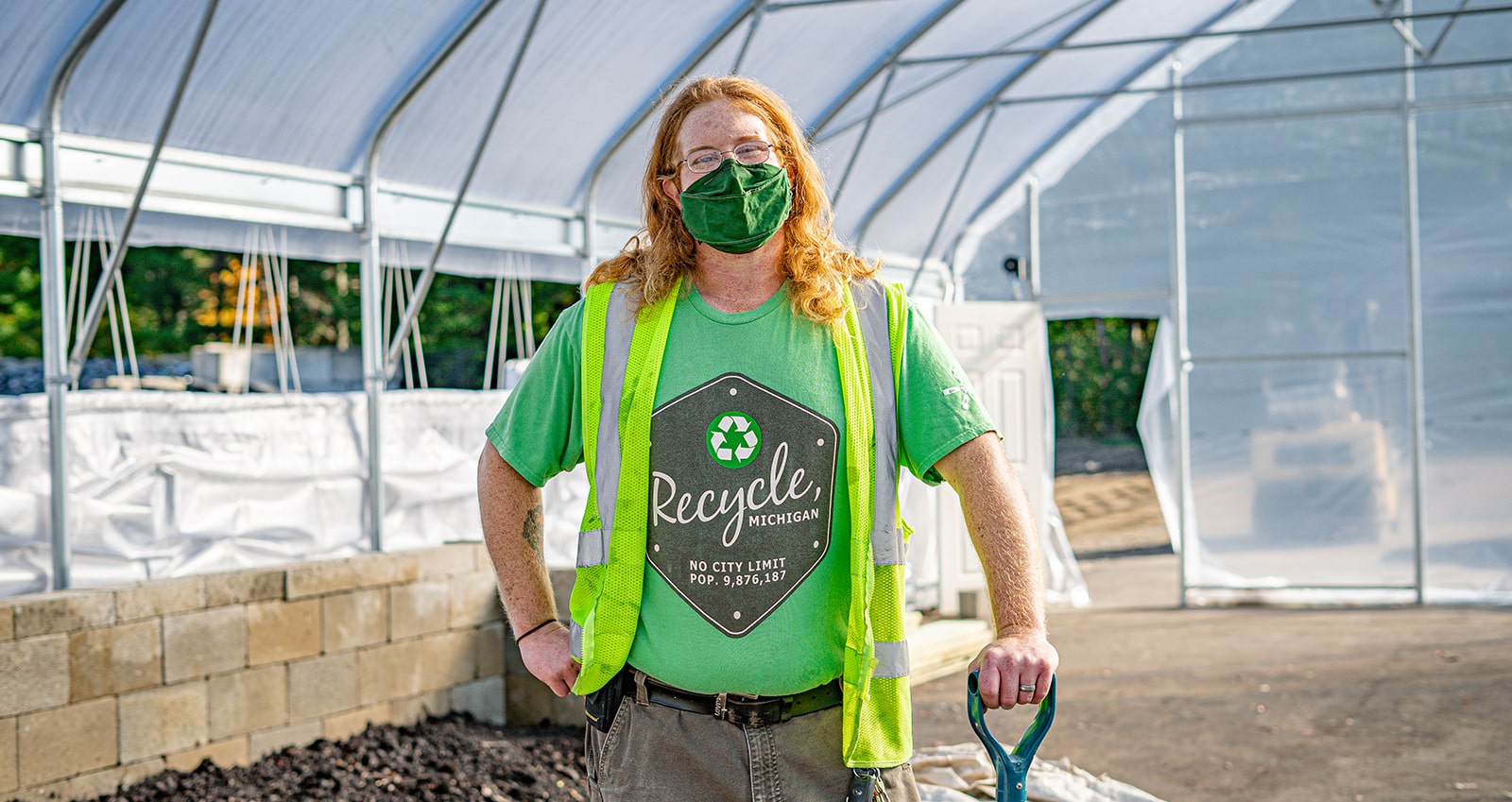The Digestive Power of Worms

Anthony Yuhasz
November 2, 2020
To address increased food scraps generated at MSU dining facilities, the Food Scrap Worm Composting (Vermicomposting) Project was created.
Through the digestive power of worms, organic materials are converted into a nutrient-rich soil amendment suitable for farms and gardens.
“In October of that year, a vermicomposting hoophouse was erected at the Student Organic Farm,” said John Biernbaum, Horticulture Department faculty member. “The greenhouse-like structure, which can maintain internal temperatures via passive solar heating and venting/shading regulation, enabled vermicomposting to continue year-round with a lower cost method available to farmers.”

In 2012, a second, concrete-padded hoophouse was constructed at the farm to better facilitate additional hot composting of materials year-round with some of that material being fed to the worms. In the first five years of operation, close to a half-million pounds of kitchen scraps were processed via hot composting and vermicomposting.
The project was not only an ecologically successful venture, it facilitated important research, contributed to the education of many students, and allowed for the sharing of worms and knowledge with local schools and farms.
Dr. John Biernbaum, MSU Horticulture DepartmentVermicomposting is win-win. It not only allows us to “close the food cycle loop” by returning minerals and organic matter in food residue to farms and gardens, maintaining healthy soils, it also keeps tons of food scraps out of landfills.

“With the announcement of Dr. Biernbaum’s upcoming retirement, and the desire of MSU’s Surplus Store and Recycling Center (SSRC) to have an on-site composting education facility, the decision was made to build a new, larger vermicomposting hoophouse at the SSRC, and to move the existing hot-composting hoophouse there as well,” said Sean Barton, SSRC project coordinator.
“Having it on the SSRC site will enable us to process more materials using our machinery for transport and will allow us to expand the educational opportunities vermicomposting affords.”
“Vermicomposting is win-win. It not only allows us to “close the food cycle loop” by returning minerals and organic matter in food residue to farms and gardens, maintaining healthy soils, it also keeps tons of food scraps out of landfills,” Biernbaum added.
The Food Scrap Worm Composting (Vermicomposting) Project compliments the Anaerobic Digester Project, a project designated to handle post-consumer food remains.

